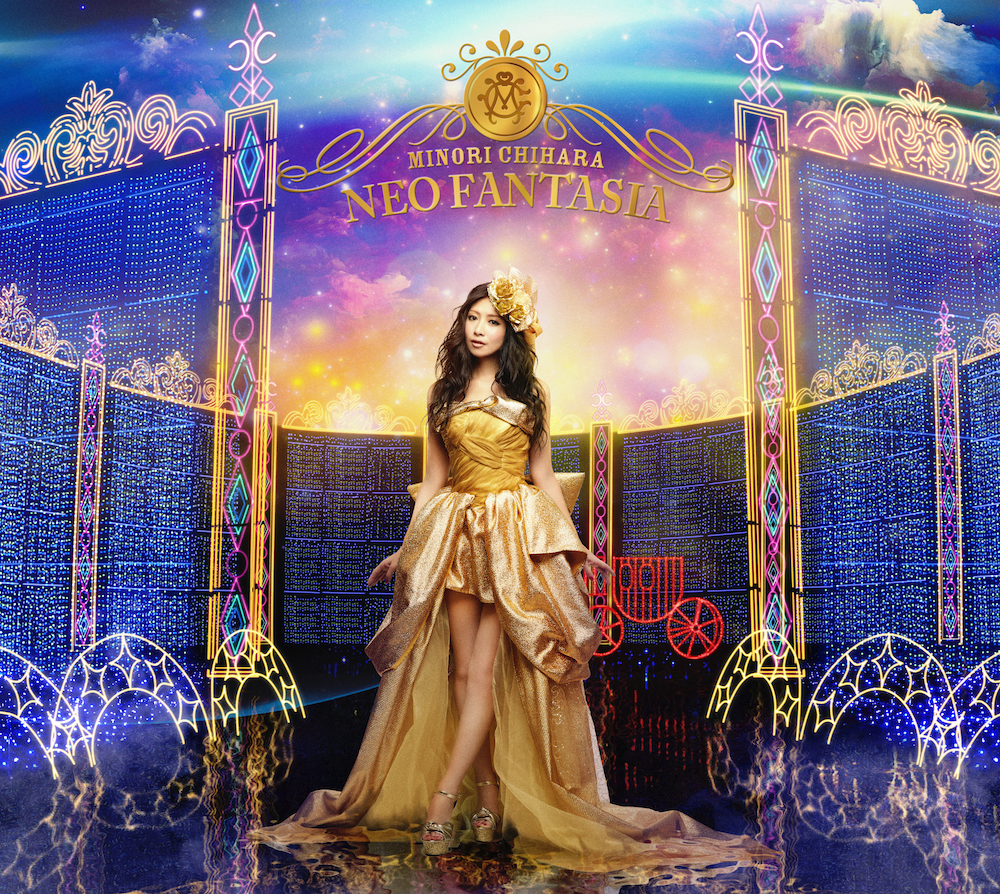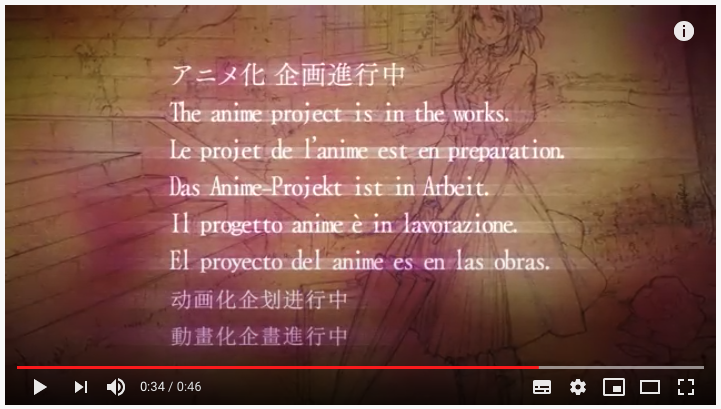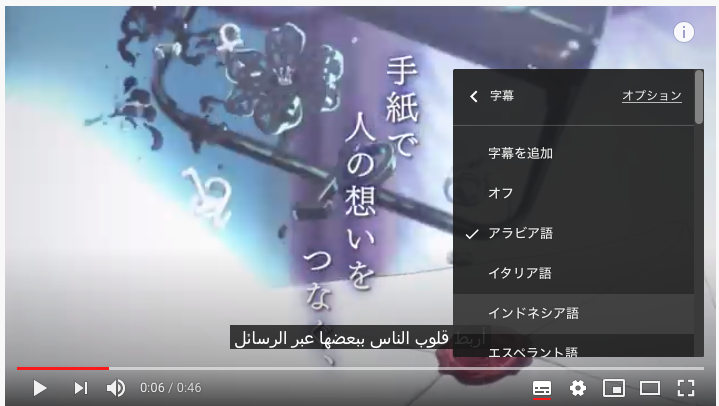The original Japanese text was written by Shigeru Saito.
Translated by Jun F
Continued from Part04
Finally, the footage and song for the Novel’s commercial had accomplished.
For the official publication, we decided to elaborate on the release a little. That was to load the message in the visuals so we could announce clearly we are going to disclose this toward the whole world.
What we did actually was placing “The anime project is in the works” message at the end of the commercial, and turning YouTube’s translation system available.
With this elaboration―and of course―the splendid visual and the sound had fairly hit the fans all over the world. Many voices had begun to arrive, and even now the messages have been kept on posted on youtube site comments. There was no doubt that the responses from the fans hugely encouraged the team.
With this, the creation of the Anime series had begun to move.
But on the other hand, a new question arose―”What will we do about the music of the anime?” as well as the question that we had in the first place―”What will we do with the 30-second commercial?”.
As for creating the anime of Violet evergarden, we had a strong consensus to proceed in tandem with the visuals and the music. I think it’s needless saying this, but Violet is not a musical type of anime. No dance or singing. What I say about the word “tandem” is about the core part―the soul. For me, this “soul” is exceptionally worthy.
As I mentioned previously, there are various types of music producers. And I’m sure that there are no wrongs or rights. As for me, my style of producing is to set the whole environment. However, this effort is not visible nor takes form. But with the existence of the producer(me) and the attempt to encourage the team, they can recognize in hindsight that the project turned out to be slightly more valuable than in the first place. This is my style.
It could have been great if I could have high proficient skills of music, like playing instruments or arranging songs, and could have reflected them into the project, but sadly I couldn’t. So, I aim to make the project worthy as possible by my involvement.
Now, I would like to mention how music is taking part in creating anime.
The opening-ending theme is essential indeed, but when working into the anime music, I always think of the” Geki-ban” first. As I’ve said before, 「劇伴」pronounce as [geki-ban]. There seems to be read as [geki-han] for other occasions, but I’d instead call [geki-ban].
I was taught by my senior that the [geki-ban] was originated from the abbreviation of 劇/GEKI(a play/drama) ‘s 伴奏/BANSO(backing/accompaniments).
Some argue that calling [accompaniment] or [BGM] may undervalue the nature of music itself, but my opinion is, the expressions should be understandable and straightforward. And the point of the value may be whether you have respect for the music or not.
Back on topic.
Hence, the designation of the Geki-ban composer is crucial. You can’t only choose someone only because of their capability. The same as I had requested to Aira Yuuki-san, the composer must have genuine affection for the piece, and at the same time, he/she could comprehend the whole team’s intention. And still, the keyword of the project remains “the world.”
When this anime came widely popular in the world, maybe we need to travel the world for promotion, or we might have the chance to hold a concert, not only in Japan but around the globe. I was indulged.
Regarding Violet’s world view, I strongly feel Europian-like atmosphere there. But would it be good to create music like that image? But then, what actually is Europian-like? What kind of music was familiar at that age, which assumes to be the Industrial age in the anime–
Would it be like Mozart, Beethoven, of Schubert?
However, they vary from individualities or the types of music they composed, so setting the genre-Violet’s musical background – as the era of industrial revolutions seemed to be unsuitable.
On the other hand, I had the hunch that the large-scale orchestration may fit in this case. So the composer needs to be good at writing those types of scores. And―it would prefer more young age, having a broad vision, and what’s more―nice in his/her personality. As obsessed with these thoughts night and day, finally, I came down to one person.
That was― Even Call.

It’s been quite a long time since we first met. I recall that it was shortly after Evan came to Japan.
After graduated from Berkeley College of Music, Evan came to Japan and started his career from 2012. I was aware of his existence since the head of Evan’s music promotion office had told me that an exciting composer had joined their office. I had heard that Evan came to Japan to make a career in the anime music industry. I suppose there may be foreigners who come to Japan with the intent of being involved in various types of music, but Evan wasn’t. His purpose was only “to involve in Japanese anime music.” He was particular.
I had checked some of his pieces at that time, and I was struck by a huge scale of expansion in each of them. There was a feeling that he might as well create an orchestration type music rather than composing adroitly 歌もの(uta-mono/songs that have lyrics) pop-songs.
His pieces he shared with me at that time were mostly created by programming, not by a live recording. So it seemed Evan could be in his element if he had a chance to make a recording with a large orchestra. Since then, I awaited for some opportunity to corroborate in creating music with him.
After a short while, I had an occasion to create Minori Chihara-san’s music album. This album, which was titled “NEO FANTASIA,” its concept was “theme park.”

I decided to have Evan compose the last song of this album. Before placing the orders to the creators, our team had set the concept on each song.
The excitement of the moment when you’re entering the park, or an exaltation when riding the roller coaster…some like that.
The piece I ordered Evan was a song that expresses the feeling of going home from the park at the end of the joyful day.―It was super fun. Wish I could be here forever. But sadly, the day is going to end… The emotion of both enjoyment and melancholy you experiences at the world of fantasy.
I wanted the music as if it was like to be played in the end credits. It was 歌もの(uta-mono), but I intended the vocal part merely a little at the end of the score. 70-~80% of it was desired to be only instrumental music.
Since it was the first time to work with him, I strongly hoped to place the order in person. Could we have a good conversation? What is his personality like? …I was eagerly looking forward to it.
At last, the day came–the very first day of meeting Evan.
Continues to Part06



